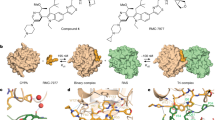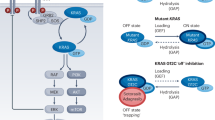Abstract
Drugs used in anti-cancer chemotherapy are thought to exert their cytotoxic action by induction of apoptosis. Genes have been identified which can mediate or modulate this drug-induced apoptosis, among which are c-myc, p53 and bcl-2. Since expression of oncogenic ras genes is a frequent observation in human cancer, we investigated the effects of the c-H-ras oncogene on anti-cancer drug-induced apoptosis. Apoptosis induced by a 2 h doxorubicin exposure was measured by in situ nick translation and flow cytometry in a rat cell line (R2T24) stably transfected with the c-H-ras oncogene and in a control cell line (R2NEO) transfected only with the antibiotic resistance gene neo. Both cell lines (R2T24 and R2NEO) had nearly identical growth characteristics, including cell doubling time, distribution over the cell cycle phases and plating efficiency in soft agar. Doxorubicin exposure of the R2NEO cells led to massive induction of apoptosis. In contrast, R2T24 cells, expressing the c-H-ras oncogene, showed significantly less apoptosis after doxorubicin incubation. Doxorubicin induced approximately 3- to 5-fold less cytotoxicity in the R2T24 cells than in the R2NEO cells, as determined by clonogenic assay in soft agar. No difference was observed in intracellular doxorubicin accumulation between the two cell lines, indicating that the classical, P-glycoprotein-mediated multidrug resistance phenotype is not involved in the observed differences in drug sensitivity. In conclusion, our data show that constitutive expression of the c-H-ras oncogene suppresses doxorubicin-induced apoptosis and promotes cell survival, suggesting that human tumours with ras oncogene expression might be less susceptible to doxorubicin treatment.
This is a preview of subscription content, access via your institution
Access options
Subscribe to this journal
Receive 24 print issues and online access
$259.00 per year
only $10.79 per issue
Buy this article
- Purchase on Springer Link
- Instant access to full article PDF
Prices may be subject to local taxes which are calculated during checkout
Similar content being viewed by others
Author information
Authors and Affiliations
Rights and permissions
About this article
Cite this article
Nooter, K., Boersma, A., Oostrum, R. et al. Constitutive expression of the c-H-ras oncogene inhibits doxorubicin-induced apoptosis and promotes cell survival in a rhabdomyosarcoma cell line. Br J Cancer 71, 556–561 (1995). https://doi.org/10.1038/bjc.1995.109
Issue Date:
DOI: https://doi.org/10.1038/bjc.1995.109
This article is cited by
-
Comparison of the multi-drug resistant human hepatocellular carcinoma cell line Bel-7402/ADM model established by three methods
Journal of Experimental & Clinical Cancer Research (2010)
-
Roles of the PI-3K and MEK pathways in Ras-mediated chemoresistance in breast cancer cells
British Journal of Cancer (2003)
-
Downregulation of Akt1 Inhibits Anchorage-Independent Cell Growth and Induces Apoptosis in Cancer Cells
Neoplasia (2001)
-
Genetic determinants of response to chemotherapy in transgenic mouse mammary and salivary tumors
Oncogene (2000)
-
Loss of p21WAF1/CIP1 accelerates Ras oncogenesis in a transgenic/knockout mammary cancer model
Oncogene (2000)



